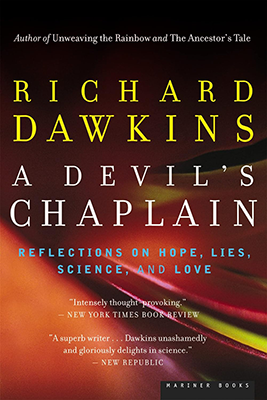A Devil’s Chaplain
“A Devil’s Chaplain” is a collection of essays by renowned evolutionary biologist Richard Dawkins, first published in 2003. The book’s title is inspired by Charles Darwin, who once referred to himself as a “Devil’s Chaplain” for his perceived heretical views on evolution. In this collection, Dawkins presents a series of essays that touch on a wide range of topics, including science, religion, morality, and skepticism.
The essays in “A Devil’s Chaplain” cover various themes, but they are all united by Dawkins’ unwavering commitment to rationalism, scientific inquiry, and secular humanism. He addresses the role of science in society, defends the theory of evolution against religious and creationist objections, and critiques the influence of religion on public policy and education.
Dawkins also explores the philosophical implications of evolutionary theory, discussing topics such as altruism, the nature of consciousness, and the origins of morality. He challenges traditional religious beliefs and argues for a naturalistic understanding of the world, emphasizing the importance of evidence-based reasoning and critical thinking.
Throughout the book, Dawkins employs his characteristic wit and clarity of expression to engage readers in thought-provoking discussions about science, reason, and the human condition. While the essays may be challenging for some readers, they offer valuable insights into the relationship between science and society and provoke reflection on fundamental questions about existence and meaning.
Overall, “A Devil’s Chaplain” is a compelling collection of essays that showcases Dawkins’ intellectual prowess and his commitment to advancing the cause of reason and enlightenment in a world often dominated by superstition and dogma. It is a must-read for anyone interested in science, philosophy, and the ongoing debate between science and religion.

